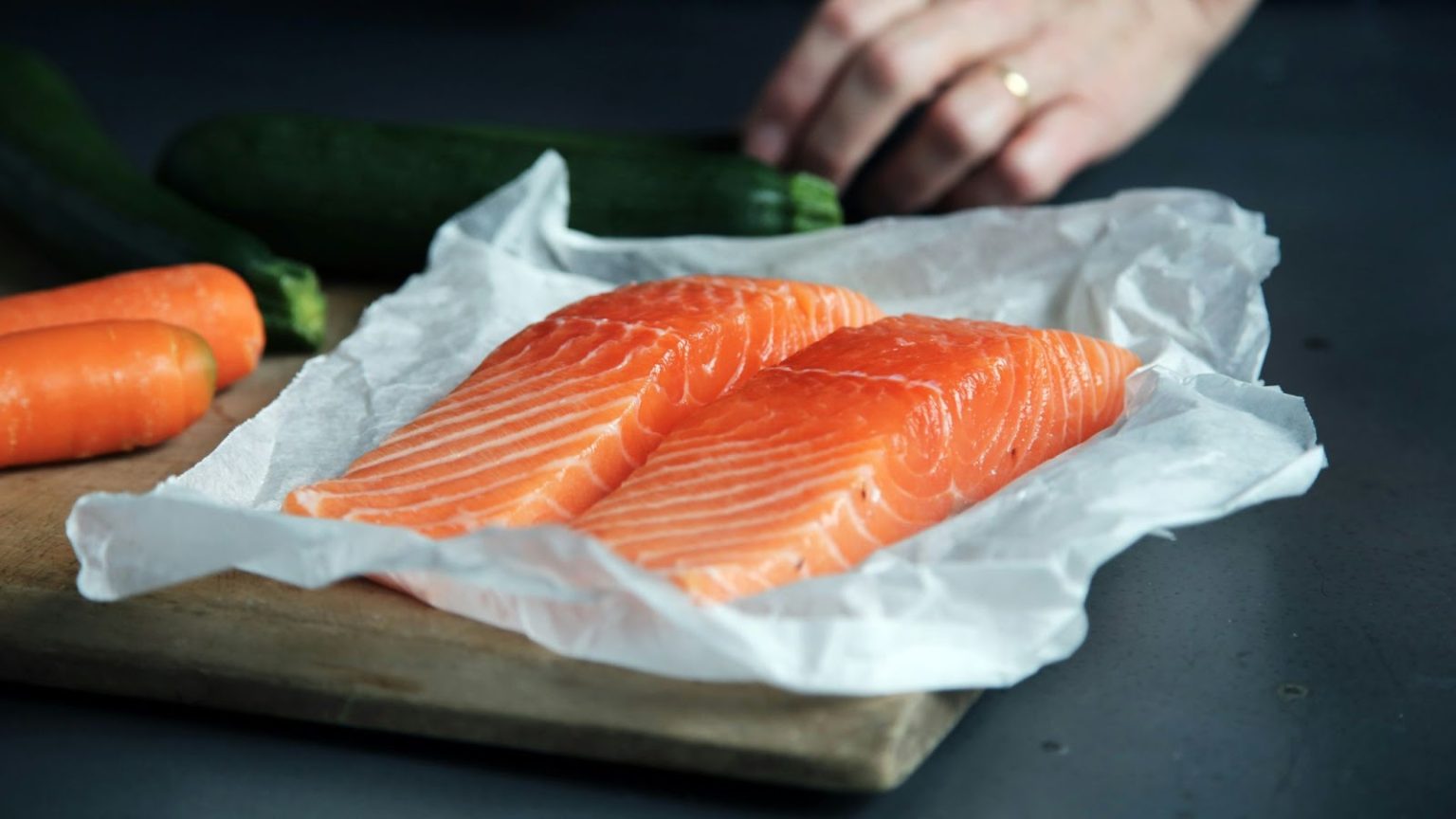When cooking salmon, any one wrong move can result in soggy, stuck-to-the-pan skin or a dry, lacklustre fillet.
In a recent Reddit post on r/cookingforbeginners, a user named Irish__Devil expressed how despite multiple attempts, trying varying temperatures and different types of oils, they can’t achieve crispy skin when cooking salmon, claiming it always sticks to the pan or just won’t crisp.
Perfecting salmon presents many challenges, given its delicate texture and the fine balance required to achieve optimal flavour and moisture without the risk of under or overcooking.
With an average of 6.6k monthly searches for ‘how to cook salmon’ in the UK, it’s clear that many Brits struggle to master this staple.
However, culinary experts from online meat and fish delivery company, Campbells Prime Meat have revealed the secrets to mastering the perfect crispy, pan-seared salmon.
Preheat the pan first
Ensure your pan is thoroughly preheated before adding the salmon. One common mistake is starting with an unheated or lukewarm pan. This can cause the salmon skin to stick to the surface, leading to a messy, torn appearance.
Preheating your pan ensures that the salmon immediately starts cooking on contact, sealing in moisture and flavour while crisping up the skin. Though it may seem counterintuitive, the sudden heat causes skin proteins to contract rapidly, firming it up and forming a natural barrier between the fish and the cooking surface.
Remove moisture from the salmon
Many overlook the crucial step of thoroughly drying the salmon skin before cooking. If the salmon isn’t thoroughly dried before cooking, it will steam instead of sear, resulting in soft, soggy skin or sticking to the pan.
To prevent this, use paper towels to blot the salmon fillets dry on both sides before seasoning. This step removes excess moisture, allowing the skin to crisp up beautifully without steaming.
After patting dry, score the skin and season the salmon generously with salt and pepper just before cooking to draw out any moisture. This helps make the skin crispy and enhances the flavour as the seasoning sticks better.
Don’t flip the salmon too soon
When it comes to salmon, patience is key. Flipping the salmon too early disrupts the crisping process and can cause the skin to tear or stick to the pan as there hasn’t been enough time for the proteins in the skin to contract.
Consider scoring the skin lightly with a knife before cooking. Start by placing the salmon skin-side down in the hot pan, gently press down on the salmon fillets with a spatula and then allow the salmon to cook undisturbed for 4-5 minutes until the skin releases naturally from the pan.
After the skin is crispy and golden brown (around 80% cooked), gently flip the salmon and cook for an additional 2-3 minutes on the flesh side until cooked to your desired doneness.
Choose the right oil
Using the wrong type of oil can hinder the crisping process. Opt for oils with high smoke points such as grapeseed, canola, or avocado oil. These oils can withstand the high heat necessary for achieving crispy skin without burning.
Instead of oiling the salmon directly, add a thin layer of oil to the preheated pan. This ensures even distribution and prevents excess oil from interfering with the crisping process, allowing for optimal browning and texture.
Avoid crowding the pan
Crowding the pan with too many salmon fillets can lower the temperature of the cooking surface and prevent proper crisping.
For a regular-sized pan, it’s recommended to cook no more than two to three salmon fillets at a time. If necessary, cook in batches, leaving approximately 2 inches of separation between each piece. This spacing allows for proper air circulation and even heat distribution, guaranteeing each fillet crisps evenly.



